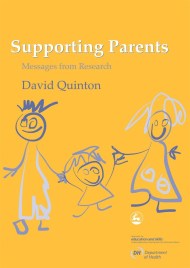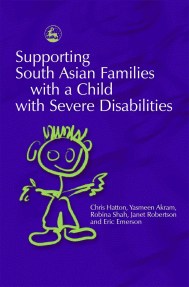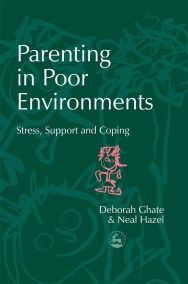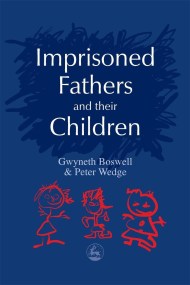Imprisoned Fathers and their Children
On sale
15th October 2001
Price: £32.99
Genre
Society & Social Sciences / Social Services & Welfare, Criminology / Social Welfare & Social Services / Welfare & Benefit Systems / Child Welfare
Selected:
ebook / ISBN-13: 9781846423031
More than 125,000 children in the UK alone are ‘sentenced’ to separation from their imprisoned parents, mainly fathers. Gwyneth Boswell and Peter Wedge draw on extensive research and experience to examine the effect this kind of separation can have on the emotional development of a child and on family relationships.
They make suggestions for work with prisoners and families in the light of current policy and practice and consider how best to support:
* children coming to terms with conflicting emotions arising from fathers’ imprisonment
* fathers who may be teenagers themselves
* mothers or carers coping with absent partners
* prison staff trying to incorporate the family as a factor in rehabilitation.
Examining the rights and needs of imprisoned fathers and their children and using case examples to demonstrate effective ways of maintaining contact and communication, this is an indispensable resource for all those working with the families of fathers in prison.
They make suggestions for work with prisoners and families in the light of current policy and practice and consider how best to support:
* children coming to terms with conflicting emotions arising from fathers’ imprisonment
* fathers who may be teenagers themselves
* mothers or carers coping with absent partners
* prison staff trying to incorporate the family as a factor in rehabilitation.
Examining the rights and needs of imprisoned fathers and their children and using case examples to demonstrate effective ways of maintaining contact and communication, this is an indispensable resource for all those working with the families of fathers in prison.
Newsletter Signup
By clicking ‘Sign Up,’ I acknowledge that I have read and agree to Hachette Book Group’s Privacy Policy and Terms of Use
Reviews
This is a very good book. The balance between punishing of lawbreakers and maintaining family ties is a delicate one. Clearly on the evidence presented here there needs to be a perceptible shift in the favour of the child. The work reported here is important not least because it highlights areas of neglect and ignorance that should receive attention if we are serious about rehabilitation following punishment and of well supported families as a resource in that progress.
Imprisoned Fathers and their Children gives a very "real" insight in to the struggles that an imprisoned father goes through... Those studying in the field of child care, family studies, parenting, human development, and social work would find this book an excellent reference for understanding what needs to be done to reduce the harmful effects of imprisonment on men and their wives and children.
This book is well presented, has clear headings and sub headings, uses statistics to illustrate key facts and findings effectively and is written in an easy style... I recommend this book to students, teachers and trainers as an interesting and informative study.
The subject of this book is both intriguing and important, especially at this time of transition, when the roles of fathers and children in this country are changing.
The book is well written, easy to read and well referenced'.
The book begins by offering a thorough review of the moral, legal and societal issues to parent/child relationships, followed by the examination of the importance of attachment in child development. A review of the research identifying the negative effects of parental separation on children is also helpfully provided. This section offers the reader plenty of food for thought and a theoretical basis from which to view the findings presented in the remainder of the text… The authors have produced a highly-readable book that presents its subject matter in a jargon-free style… The text also includes a series of quotes from prisoners, partners and children that serves to consolidate some of the main issues raised. I would therefore recommend this text as a good background reference that gives great insight into the views of the fathers and their children.
This excellent book examines the effect on men and their children the imprisonment and the necessity of maintaining the best possible communications between them if the relationship is to survive in a meaningful way.
The strength of this book lies in the descriptive material with a valuable usage of quotes from all research subjects -the imprisioned fathers, the partners, and perhaps most importantly, the children themselves. The style of the book ensures the reader comes away with a real sense of the impact of a father's imprisionment. In this way, the authors give a voice to those who are not often heard. The format is easy to read, with international examples of good practice in the field and a wide range of useful references to further an understanding of the subject matter.
The mulitiple problems faced by children whose fathers are in prison are explored throughout the book. Over 200 prisoners were interviewed and the book covers their perceptions of the effects on their children, the provision of father-child contact, how this is experienced by all the people involved, the kind of support systems needed, and concludes with some strategies for the future.








